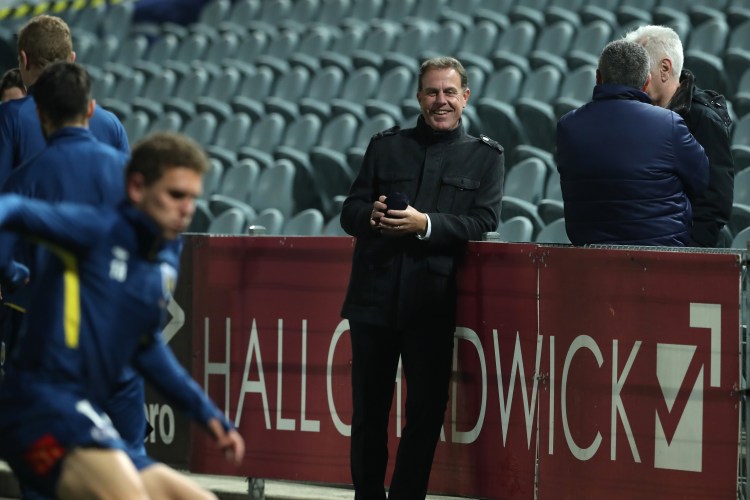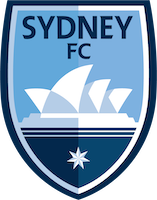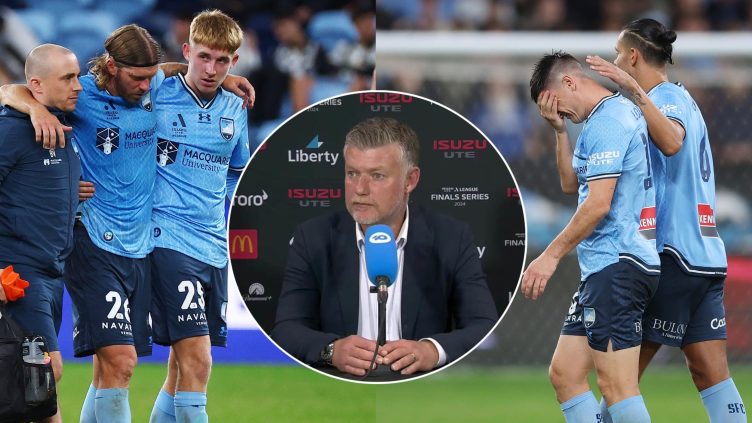On October 30, 2021, Alen Stajcic took a call about his interest in taking the Philippines to the Asian Cup in India in January.
On November 7, Stajcic and his two trusted and loyal allies – Nahuel Arrarte and Luca Tonetti – were on a plane heading to the relative unknown; a camp in the US, to meet a squad of 25 pre-selected players, and to trial some aspiring fresh faces. They were walking into a “situation they knew very little about, and a team they knew very little about”.
By the start of February, the world No.64 not only made the final four of the Asian Cup, but qualified for a World Cup for the first time in their history.
Stajcic, who so vividly recalls following the Socceroos’ World Cup qualifying efforts as a boy, through to 2005, helped the Philippines to their own Uruguay moment.
“Being a part of another country – being entrusted to try and achieve the miraculous or near impossible was really special,” he told KEEPUP.
“We all (the coaching team) felt that same sense of … honour: all the trust put in us to make it happen.
“I guess I felt even more accountable than (with my) own national team – (because) you try to repay that faith and try to achieve something not achieved in their history before.”
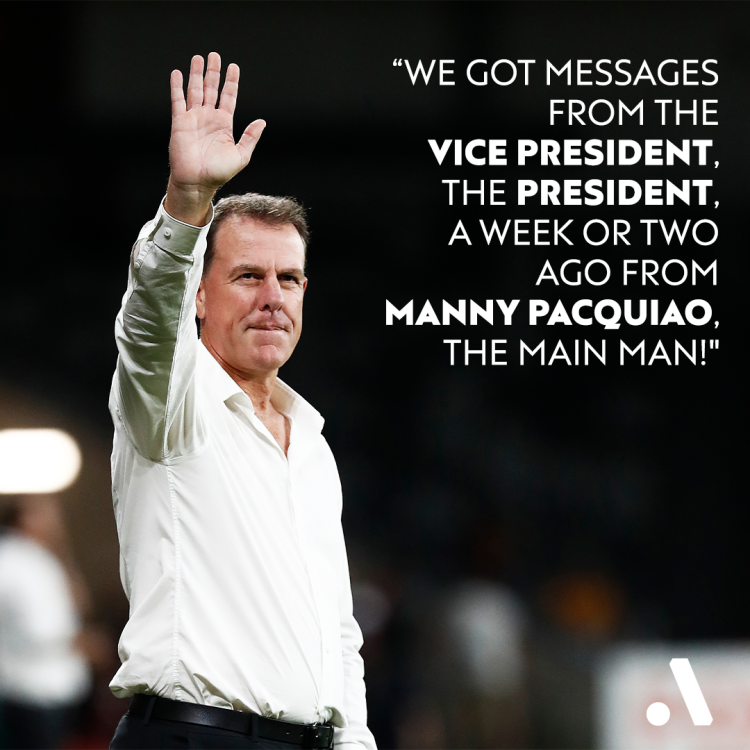
Qualifying for the World Cup, doing something never achieved before, would have been some achievement on its own.
When you add the backstory in, no wonder Stajcic describes it as the “best experience of his career”.
“I’ve been coaching for a long time now – 20-25 years at various levels – every team, competition you’ve ever gone into has got unique challenges but this was without question the most unique,” Stajcic reflected.
‘It was complex’
Between 8 December 2019, and their first match on 21 January 2022, they’d played two competitive games: matches against Hong Kong and Nepal in September, which they sneaked through with two late goals to qualify for the Asian Cup.
The Philippines’ domestic competition had been shut down because of lockdown, so six-seven players hadn’t even kicked a ball competitively for 12-18 months.
Some players couldn’t even get visas to join the camp in the States.
Then Omicron hit, and six players had contracted it by the end of December, and on tournament eve, lockdowns took over, with elevated anxieties over who could travel, and who might be prevented from travelling to India.
And to top it off, there were complications over passports for players – some of whom were going to be in the first XI – meaning the coaching staff were racing a clock to know who was simply eligible for the tournament.
During all this, Stajcic was learning about his players and formulating a game plan to make them competitive – a goal in itself, let alone contemplating a run into the final four.
“It was a complex preparation,” Stajcic said.
“But the players, to move away from home for three months – whether they were based in America, Philippines, Europe or Japan – everyone sacrificed their life for three months, putting aside friends, family, college school or work.
“But doing it for the love of the team and country was so humbling to see.
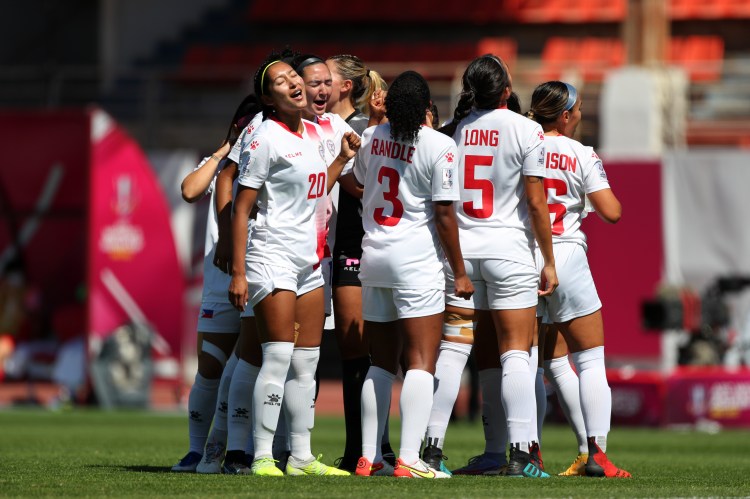
“It is an amazing group, whose thirst for learning, and hunger for improvement was something I’d never seen before.
“The resilience to back up day in, day out and fight for their spot and their team to get as far … was something that was really rewarding to see – that kind of desire within a group, and unity.
“So, when you put all those ingredients together, plus the qualities within individuals and the team culture that grew, that was special and key (for the success).”
Setting the tone
Stajcic walked into a new squad, with players who hadn’t trained or played for a while, and for most of them, it was their first full-time professional training experience.
It was an eclectic mix that Stajcic was working with. He had some pro squad members flying in from Sweden, Japan, Spain and Cyprus. Others were aligned to schools and college teams. And some of the players who trialled, during an “eye opening” quest to find gems from outside the squad, ended up becoming part of his XI.
“It was really, really, bizarre to see a national team conducted in this manner,” he reflected.
“It was almost akin to a local youth program – see who would turn up and if you can find anyone.
“(Some became) key players within the group and starting players. A bizarre, difficult, unusual process but it reaped a few results.”
They were so underdone, it took six shorter practice matches before Stajcic and his staff were confident of sanctioning a 90 minute hit-out.
Stajcic added: “Knowing as coaches, what was lying ahead, was a bit daunting: four to five matches in the Asian Cup, at a high level, with the potential of extra-time.
“Our message was clear: game four or five will be where World Cup qualifying (can happen). Ensuring we will be fit and healthy for that was the main message.”
Where do you even begin with so much to do, in such a short space of time, with the small matter of an Asian Cup group featuring Australia?
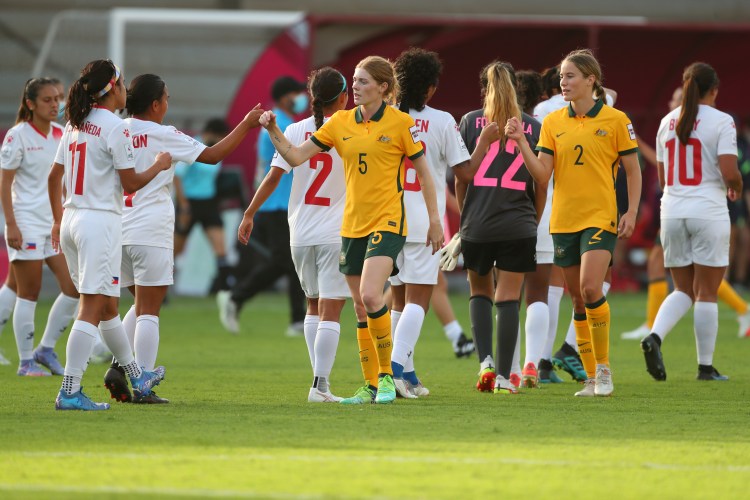
“Interviews with every player,” Stajcic explained. “We sat down and had half hour discussions to find out about them as people. What they were expecting as a group.
“It gave us a much clearer view of where they’ve been, where they are, and where they want to get to.
“It was really enlightening and important, and as a coaching group, we packaged that up and presented it back to the group.”
Upon reflection, getting that “buy-in” from the players, goals in “their words, feelings and thoughts”, was “probably the most important aspect in setting the tone and the narrative.”
From squeaking past Nepal to an Asian Cup semi-final
What happened next was beyond anyone’s wildest expectations.
They’d snuck past Nepal and Hong Kong.
Suddenly, with a collective buy-in, desperation to succeed, and willingness to learn, the Philippines had been moulded into a competitive unit. Not just against Thailand and Indonesia, but Australia and then, in the quarter-finals they eliminated Chinese Taipei.
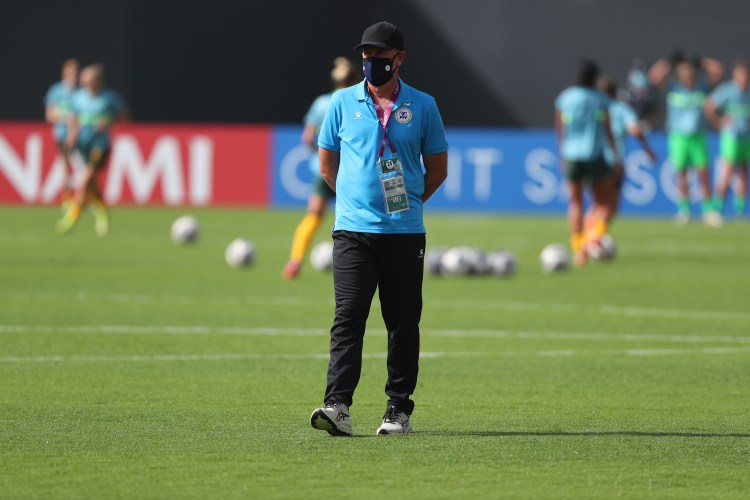
The former Matildas boss does not include surpassing his former side’s quarter-final finish as part of the reason for the significance of the achievement.
Even upon reflection, a week after returning home, the collective desire of his players still moves him, as does the magnitude of what it meant for the Philippines.
“It was unprecedented in terms of their exposure to football.
“Basketball by far is the No.1 sport there, a lot of that connection is to America.
“We received messages from the vice president, just (last week) the president, a week or two ago from Manny Pacquiao, the main man!
“It just shows the cut through it got throughout the country. The fact the first time ever a Philippines football side had qualified, really had a massive impact on fans, media, socials and local players alike.”
“It (is similar to) football in Australia, to an extent – not the major sport – and not dissimilar to 2005 … that kind of momentum built up through the two weeks, and the crescendo, and the manner was similarly felt.”
He continued: “We were all proud of what we all achieved as a group. It doesn’t come down to one person, or player, or staff– there is no way you can achieve something like that without buy-in from every single person.
“The whole playing group was so unified and aligned. Every staff member was so in tune. There’s no way an accomplishment like that could happen without that.
“That’s the part that feels the most rewarding.”
Whether the Philippines can repeat that miracle work at the World Cup, or if Stajcic will be in charge for his home country’s showpiece, are still unknowns.
Regardless, the Asian Cup will have lasting impacts not just on the region, but a generation.
“It is a shame we didn’t have crowds at the Asian Cup, didn’t get to see the full impact of hosting in an emerging country,” he said.
“There’s a lot of room left for growth. And the more emerging nations like Philippines, who come through and start challenging … the better it’ll be for the game ultimately.
“You’re talking India, China, even Philippines (combined nearly three billion people); if we can grow the game in some of these locations, it will certainly reclaim its right place as the biggest sport in the region, especially for females.”
A-Leagues lessons
Between his stints in the international women’s game with the Matildas and Philippines, the former Liberty A-League title winner with Sydney FC had a few seasons reviving Central Coast Mariners in the Isuzu UTE A-League.
“I think it did (help) actually,” he mused, when asked if that underdog experience helped him for this role.
“I spent the first 15-16 years in full-time coaching, 2003-2015, in New South Wales and with Sydney FC, always with the favourites, always the dominant team, always getting the most amount of players in national teams.
“The pressure is different – to keep winning is different to the underdog. Moving to the Mariners and starting from ground zero, the two key learnings were the importance of resilience and leadership.
“Being able to bounce back and fight as quickly and often as you can is an essential quality in the whole group – players, staff, everyone attached.
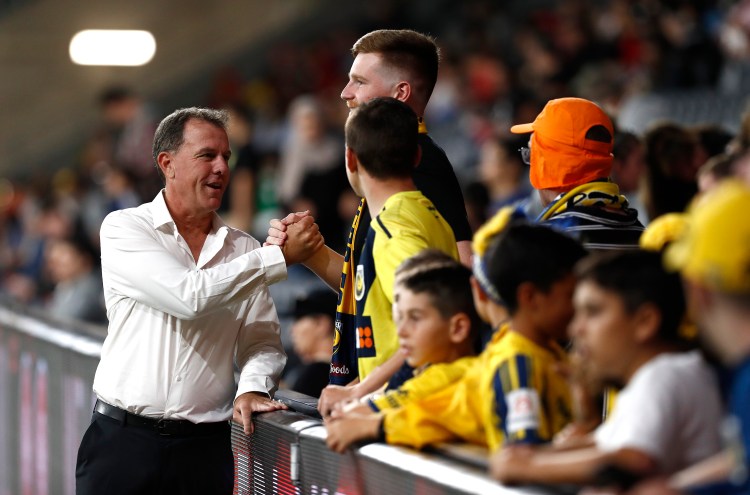
On leadership, he continued: “At the Mariners I was very, very fortunate to have Oli Bozanic, Matt Simon and Marco Urena and have been quoted so many times saying what a massive impact they had on the group, (as well as) a (Mark) Birighitti, Kye Rowles to a certain extent.
“Being in winning teams, I possibly didn’t get to see the full force of how important that leadership and resilience were, but being in an underdog team, it is a weapon and galvanising force in a group. It is an essential ingredient to move forward … without that kind of leadership in the staff and playing group, you really can’t have alignment and unity.”
And with those two key ingredients, and more, a cold call in October turned into an unexpected World Cup berth and a piece of national history.
